
Sergei Gerasimov
출생 : 1906-05-21, Kundravy, Urals, Russian Empire
사망 : 1985-11-26
약력
Sergei Appolinarievich Gerasimov (21 May 1906 – 26 November 1985) was one of the most reputable Soviet film directors and screenwriters.
The oldest film school in the world, the VGIK, bears his name. Gerasimov started his film industry career as an actor in 1924. At first he appeared in Kozintsev and Trauberg films, such as The Overcoat and The New Babylon. Later, he was commissioned to produce screen versions of the literary classics of Socialist realism. His epic screenings of Alexander Fadeyev's The Young Guard (1948) and Mikhail Sholokhov's And Quiet Flows the Don (1957–58) were extolled by the authorities as exemplary.
During several decades of their teaching in the VGIK Gerasimov and his wife Tamara Makarova prepared many generations of Russian actors. In his last movie Gerasimov played Leo Tolstoy, while Makarova was cast as Tolstoy's wife. Gerasimov is buried in the Novodevichy Cemetery of Moscow. Description above from the Wikipedia article Sergei Gerasimov (film director), licensed under CC-BY-SA, full list of contributors on Wikipedia.
From Wikipedia, the free encyclopedia.

Lev Tolstoi
The film consists of two parts: “Insomnia” and “Departure”. We shall meet Lev Tolstoy in the final years of his life at Yasnaya Polyana. We shall see him surrounded by his family, friends, acquaintances and absolute strangers who were coming to the great man and artist from all over the world. We shall hear “the voice of his thoughts”. In his sleepless nights, we shall follow his memory of the happy youthful years and the crucial, hard ones. We shall witness Tolstoy’s tragic departure from Yasnaya Polyana and his death at an obscure little station of Astapovo.

Writer
The film consists of two parts: “Insomnia” and “Departure”. We shall meet Lev Tolstoy in the final years of his life at Yasnaya Polyana. We shall see him surrounded by his family, friends, acquaintances and absolute strangers who were coming to the great man and artist from all over the world. We shall hear “the voice of his thoughts”. In his sleepless nights, we shall follow his memory of the happy youthful years and the crucial, hard ones. We shall witness Tolstoy’s tragic departure from Yasnaya Polyana and his death at an obscure little station of Astapovo.

Director
The film consists of two parts: “Insomnia” and “Departure”. We shall meet Lev Tolstoy in the final years of his life at Yasnaya Polyana. We shall see him surrounded by his family, friends, acquaintances and absolute strangers who were coming to the great man and artist from all over the world. We shall hear “the voice of his thoughts”. In his sleepless nights, we shall follow his memory of the happy youthful years and the crucial, hard ones. We shall witness Tolstoy’s tragic departure from Yasnaya Polyana and his death at an obscure little station of Astapovo.

Writer
Late 17th century. With no access to the sea, Russia suffers great losses in foreign trade. Peter tries to capture the Turkish fortress of Azov, but with no success: he can win only if he has a fleet. Peter’s ukases provoke the Boyars’ indignation. Europe looks in amazement: the Russian tsar begins to work at a Dutch shipyard learning the subtleties of shipbuilding?! But his training is cut short. Peter has to return to Russia in order to brutally suppress the Streltsy rebellion organized by his sister Sophia.

Writer
The years of the tsar’s adolescence and youth were permeated with deadly danger coming from some of the Boyars, the rebellious Streltsy and Tsarevna Sophia who aspired for power. But already at that early time Peter demonstrates a profound, bright intellect, a strong will and the sense of purpose, which help him disarm both his open and secret enemies.

Director
Late 17th century. With no access to the sea, Russia suffers great losses in foreign trade. Peter tries to capture the Turkish fortress of Azov, but with no success: he can win only if he has a fleet. Peter’s ukases provoke the Boyars’ indignation. Europe looks in amazement: the Russian tsar begins to work at a Dutch shipyard learning the subtleties of shipbuilding?! But his training is cut short. Peter has to return to Russia in order to brutally suppress the Streltsy rebellion organized by his sister Sophia.

Director
The years of the tsar’s adolescence and youth were permeated with deadly danger coming from some of the Boyars, the rebellious Streltsy and Tsarevna Sophia who aspired for power. But already at that early time Peter demonstrates a profound, bright intellect, a strong will and the sense of purpose, which help him disarm both his open and secret enemies.

Writer
Historical psychological drama which chronicles the attempts of a provincial young man to rise socially beyond his modest upbringing through a combination of talent, hard work, deception, and hypocrisy - who ultimately allows his passions to betray him.

Director
Historical psychological drama which chronicles the attempts of a provincial young man to rise socially beyond his modest upbringing through a combination of talent, hard work, deception, and hypocrisy - who ultimately allows his passions to betray him.
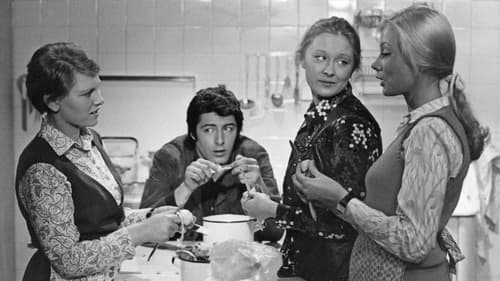
Pyotr Nikanorovich Vorobyev
The young girl Olga Vasilyeva grew up in an orphanage. She never knew her mother and wants to find her. The only trace she has is a preserved letter from her mother from her personal file, which she managed to get from the administration of the orphanage. For a short vacation at her factory school, she travels from Sverdlovsk to Moscow following the unreliable traces of this letter. Yelena Alekseyevna — the woman she finds when she arrives at the address turns out to be a teacher in a ballet school, the wife of an ordinary senior teacher at the Moscow Technical Institute (who didn't defend his dissertation and is complacent about this) and an old-Moscow intellectual. She kindly meets her, but she is not the person Olga is looking for, she only has the same last name and first name and consonant middle name. She is kind and hospitable, ready to help the girl find her real mother and offers Olga to visit her house during a short stay in Moscow.

Director
The young girl Olga Vasilyeva grew up in an orphanage. She never knew her mother and wants to find her. The only trace she has is a preserved letter from her mother from her personal file, which she managed to get from the administration of the orphanage. For a short vacation at her factory school, she travels from Sverdlovsk to Moscow following the unreliable traces of this letter. Yelena Alekseyevna — the woman she finds when she arrives at the address turns out to be a teacher in a ballet school, the wife of an ordinary senior teacher at the Moscow Technical Institute (who didn't defend his dissertation and is complacent about this) and an old-Moscow intellectual. She kindly meets her, but she is not the person Olga is looking for, she only has the same last name and first name and consonant middle name. She is kind and hospitable, ready to help the girl find her real mother and offers Olga to visit her house during a short stay in Moscow.
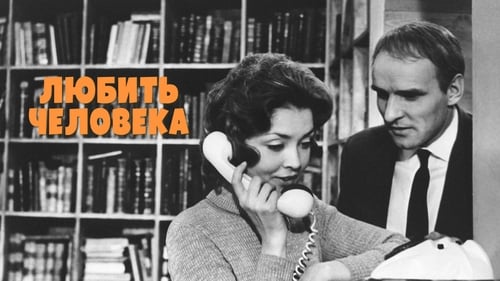
Screenplay
A film about young architects who are building a new city in Siberia (Norilsk), their anxieties, concerns, and victories. Story of subtle psychology of love and personal happiness experienced men and women, behind the shoulders of which the pain of the past

Director
A film about young architects who are building a new city in Siberia (Norilsk), their anxieties, concerns, and victories. Story of subtle psychology of love and personal happiness experienced men and women, behind the shoulders of which the pain of the past
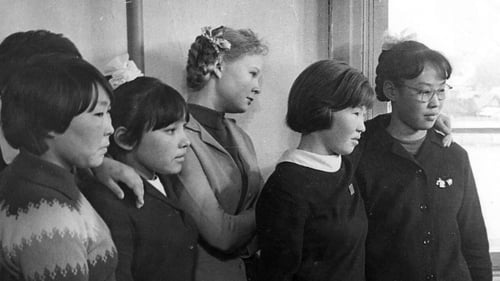
Writer
The film is a reflection on the responsibility of man to other people, native nature and the world around us, the problem of preserving Lake Baikal, on the banks of which a large construction project has unfolded. The first half of the 60s of the XX century, the story of the love of young Lena Barmina to an adult respectable person, bearing on his shoulders a heavy burden of responsibility for the activities of a huge enterprise. Construction engineer Chernykh and Lena, the daughter of a scientist, are doing everything to save the lake from harmful and unjustified plums. A difficult relationship develops between them and soon Lena realizes that she is in love. But after learning that Chernykh is married, the girl leaves...

Director
The film is a reflection on the responsibility of man to other people, native nature and the world around us, the problem of preserving Lake Baikal, on the banks of which a large construction project has unfolded. The first half of the 60s of the XX century, the story of the love of young Lena Barmina to an adult respectable person, bearing on his shoulders a heavy burden of responsibility for the activities of a huge enterprise. Construction engineer Chernykh and Lena, the daughter of a scientist, are doing everything to save the lake from harmful and unjustified plums. A difficult relationship develops between them and soon Lena realizes that she is in love. But after learning that Chernykh is married, the girl leaves...
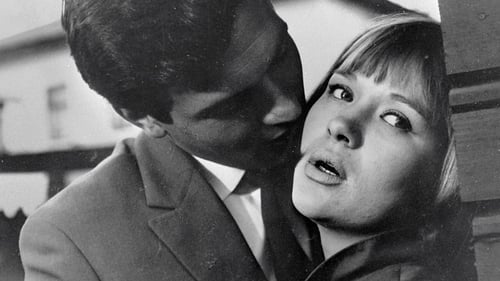
Writer
A successful young journalist goes to a small industrial city in order to understand the written complaints of a certain girl. When he met the author of the letters and the girl whom she had slandered, he didn't immediately understand the complexity of the situation and the measure of responsibility to those whom he was obliged to protect...

Alexei Kolesnikov
A successful young journalist goes to a small industrial city in order to understand the written complaints of a certain girl. When he met the author of the letters and the girl whom she had slandered, he didn't immediately understand the complexity of the situation and the measure of responsibility to those whom he was obliged to protect...

Director
A successful young journalist goes to a small industrial city in order to understand the written complaints of a certain girl. When he met the author of the letters and the girl whom she had slandered, he didn't immediately understand the complexity of the situation and the measure of responsibility to those whom he was obliged to protect...

Lvov-Shcherbatsky
The plot is based on the dramatic fate of the Red Army commander Aleksei Ivanovich Pavlov. Having been captured in January 1942 and being among the displaced persons, he didn't immediately decide to return to the USSR. Having rolled around the foreign country for 17 years, Aleksei nevertheless returned to his homeland. He goes to his brother in the south of the country to Sevastopol. Aleksei accidentally meets the doctor Anna Andreyevna, who was saved from death in besieged Leningrad. She travels by car from Moscow and also to the south, with her daughter Tanya; she suggests he join them. Aleksei tells about his life on the road.

Writer
The plot is based on the dramatic fate of the Red Army commander Aleksei Ivanovich Pavlov. Having been captured in January 1942 and being among the displaced persons, he didn't immediately decide to return to the USSR. Having rolled around the foreign country for 17 years, Aleksei nevertheless returned to his homeland. He goes to his brother in the south of the country to Sevastopol. Aleksei accidentally meets the doctor Anna Andreyevna, who was saved from death in besieged Leningrad. She travels by car from Moscow and also to the south, with her daughter Tanya; she suggests he join them. Aleksei tells about his life on the road.

Director
The plot is based on the dramatic fate of the Red Army commander Aleksei Ivanovich Pavlov. Having been captured in January 1942 and being among the displaced persons, he didn't immediately decide to return to the USSR. Having rolled around the foreign country for 17 years, Aleksei nevertheless returned to his homeland. He goes to his brother in the south of the country to Sevastopol. Aleksei accidentally meets the doctor Anna Andreyevna, who was saved from death in besieged Leningrad. She travels by car from Moscow and also to the south, with her daughter Tanya; she suggests he join them. Aleksei tells about his life on the road.

Screenplay

Writer
Based on the novel of the same name by Mikhail Sholokhov, about the fate of people broken by the First World War, the October Revolution of 1917 and the Civil War in Russia (1917-1922), about the collapse of the foundations and ideals of the Don Cossacks of Russia at the beginning of the XX century, about the personal tragedy of the protagonist — Grigoriy Melekhov.

Director
Based on the novel of the same name by Mikhail Sholokhov, about the fate of people broken by the First World War, the October Revolution of 1917 and the Civil War in Russia (1917-1922), about the collapse of the foundations and ideals of the Don Cossacks of Russia at the beginning of the XX century, about the personal tragedy of the protagonist — Grigoriy Melekhov.

Director
An international anthology about the struggles of female workers around the world.

Writer

Writer

Director

Director
March 9th, 1953. A gray, sad day. Clouds float low over the Kremlin towers. A city that unrecognizably grew, prettier and matured - this Moscow froze in solemn grief. The country escorts its father and leader, Joseph Stalin.

Director
A young woman is going to the village to start working as doctor.

Director
The New China (Russian: Освобождённый Китай, Osvobozhdyonnyy Kitay) is a 1950 Soviet documentary film directed by Sergei Gerasimov. It was entered into the 1951 Cannes Film Festival.

Writer
In 1942, local teenagers are organizing the underground resistance in the city of Krasnodon during the Nazi occupation of Russia. The teens manage to outsmart the Nazis in their fight, and their activity lifts the spirits of the surviving citizens.

Director
In 1942, local teenagers are organizing the underground resistance in the city of Krasnodon during the Nazi occupation of Russia. The teens manage to outsmart the Nazis in their fight, and their activity lifts the spirits of the surviving citizens.

Director
A variety of Russian stars are presented in a revue that includes many traditional songs and dances

Screenplay
August 1941. Residents of the Ural town escorted to the front of men. Left alone, women take on the most difficult cases, showing outstanding organizational skills and will. Together with the evacuated plant, refugees arrive in the town. The heroine of the Film Anna takes to her house a woman with children — her example is followed by the rest…

Director
August 1941. Residents of the Ural town escorted to the front of men. Left alone, women take on the most difficult cases, showing outstanding organizational skills and will. Together with the evacuated plant, refugees arrive in the town. The heroine of the Film Anna takes to her house a woman with children — her example is followed by the rest…

Screenplay
The autumn of 1941. Leningrad is besieged by the Nazis. A new model of tank is being developed at a large defense plant. Built in the shortest possible time combat vehicles are tested directly on battlefields, fighting with fascists in the outskirts of the city. The first feature film about the heroic everyday life of city defenders was shot directly in assembly shops of plants and in the streets of Leningrad when the city was fighting against the enemy

Director
The autumn of 1941. Leningrad is besieged by the Nazis. A new model of tank is being developed at a large defense plant. Built in the shortest possible time combat vehicles are tested directly on battlefields, fighting with fascists in the outskirts of the city. The first feature film about the heroic everyday life of city defenders was shot directly in assembly shops of plants and in the streets of Leningrad when the city was fighting against the enemy
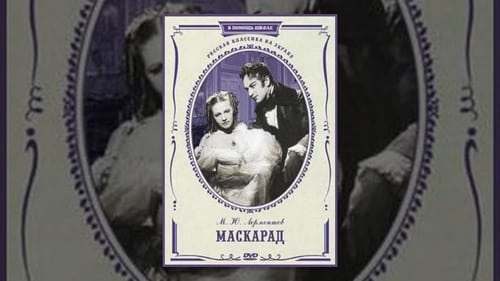
Taken from a Lermontov play, Sergei Gerasimov's Maskarad (1941) begins when beautiful Nina (Makarova) loses a bracelet during a masked ball. Another woman finds it and without revealing whose bracelet it belongs to, she gives it to an ardent Calvary officer admirer at the ball. This leads to deeper and deeper incisions upon the urbane social body of Tsarist Russia. A drama of pride, marital distrust, gambling, infidelity and humiliation twirls around the decaying corpse of a perverted social class.

Writer
Taken from a Lermontov play, Sergei Gerasimov's Maskarad (1941) begins when beautiful Nina (Makarova) loses a bracelet during a masked ball. Another woman finds it and without revealing whose bracelet it belongs to, she gives it to an ardent Calvary officer admirer at the ball. This leads to deeper and deeper incisions upon the urbane social body of Tsarist Russia. A drama of pride, marital distrust, gambling, infidelity and humiliation twirls around the decaying corpse of a perverted social class.

Director
Taken from a Lermontov play, Sergei Gerasimov's Maskarad (1941) begins when beautiful Nina (Makarova) loses a bracelet during a masked ball. Another woman finds it and without revealing whose bracelet it belongs to, she gives it to an ardent Calvary officer admirer at the ball. This leads to deeper and deeper incisions upon the urbane social body of Tsarist Russia. A drama of pride, marital distrust, gambling, infidelity and humiliation twirls around the decaying corpse of a perverted social class.

Writer

Writer
A young teacher comes to work in his native village, plans to build a new school. The arrival of the teacher causes confusion in the soul of the young neighbor Agrafena Shumilina.

Director
A young teacher comes to work in his native village, plans to build a new school. The arrival of the teacher causes confusion in the soul of the young neighbor Agrafena Shumilina.

Director

Screenplay
Six polar explorers arrives to a remote island in Arctic for a year-long scientific expedition. When their ship departs, they unpack only to find a young stowaway, who romanticized Arctic heroes, and tried to join them on multiple occasions finally succeeding. That's how six became seven. Life of polar explorers is tough, and full of danger. During one year they are largely isolated from the mainland, and should survive using their resourcefulness, smarts, knowledge, and existing supplies with occasional unreliable radio communications. The Seven are resilient, cheerful, they forged a true friendship. Now they are ready to face the unforgiving Arctic.

Director
Six polar explorers arrives to a remote island in Arctic for a year-long scientific expedition. When their ship departs, they unpack only to find a young stowaway, who romanticized Arctic heroes, and tried to join them on multiple occasions finally succeeding. That's how six became seven. Life of polar explorers is tough, and full of danger. During one year they are largely isolated from the mainland, and should survive using their resourcefulness, smarts, knowledge, and existing supplies with occasional unreliable radio communications. The Seven are resilient, cheerful, they forged a true friendship. Now they are ready to face the unforgiving Arctic.

The story of a little schoolgirl who was always late for lessons, and her friends who came up with an original way to re-educate a truant.

Director

Assistant Director
A young teacher is sent to a remote province, separating her from her lover, and sets about the difficult task of building a school there.
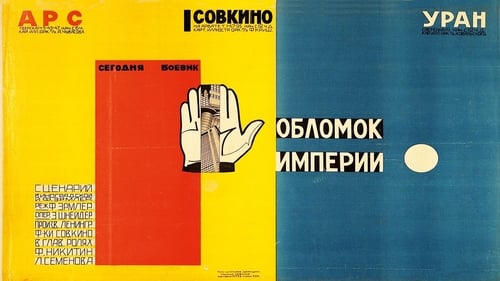
Director Frederick Ermler’s last silent feature and the last of four collaborations with actor Fiodor Nikitin. Nikitin plays an officer who spends a decade after the Great War as a shell-shocked amnesiac, until a glimpse of a woman through a train window sparks the return of his memory. He makes his way back to St. Petersburg, now Leningrad, a man out of time who struggles to make sense of the new society brought about by the revolution.
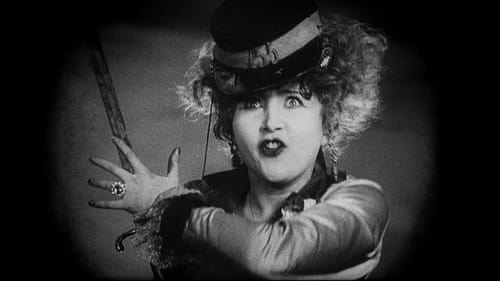
Lutro, the journalist
In the short-lived Commune of Paris, a conscripted soldier falls in love with a Communard saleswoman. As the army cracks down on the revolutionaries, the soldier is forced to fight against the Commune, and the pair's love is put to the test.

Medoks
The film tells about the Decembrists’ revolt in the south of Russia. Right before the Decembrist Revolt 1825 a chevalier of fortune decides that it's time for a game. But on whom to make a bet? He asks the cards. But he's not the only one who makes the choice.

Drunkard
Soviet film based on Nikolai Gogol stories "Nevsky Prospekt" and "The Overcoat".

Man The Question
Typically of the heady days of early Soviet cinema, this is constructed according to the fast, sharp editing principles advocated by Eisenstein, complete with symbolic inserts; but in terms of subject matter, it's much less explicitly political than most movies emerging from Russia in the '20s. Chronicling a young sailor's descent into a murky, treacherous underworld of pimps and thieves, after having encountered a Louise Brooks lookalike at a fairground and missed his departing boat, it's a lively moral fable that delights in vivid visual effects and quirky characterisations. If the plot occasionally reveals gaping holes, and the tacked-on ending urging the clearance of the Leningrad slums seems to be rather gratuitous, there's enough going on to keep one attentive and amused.















